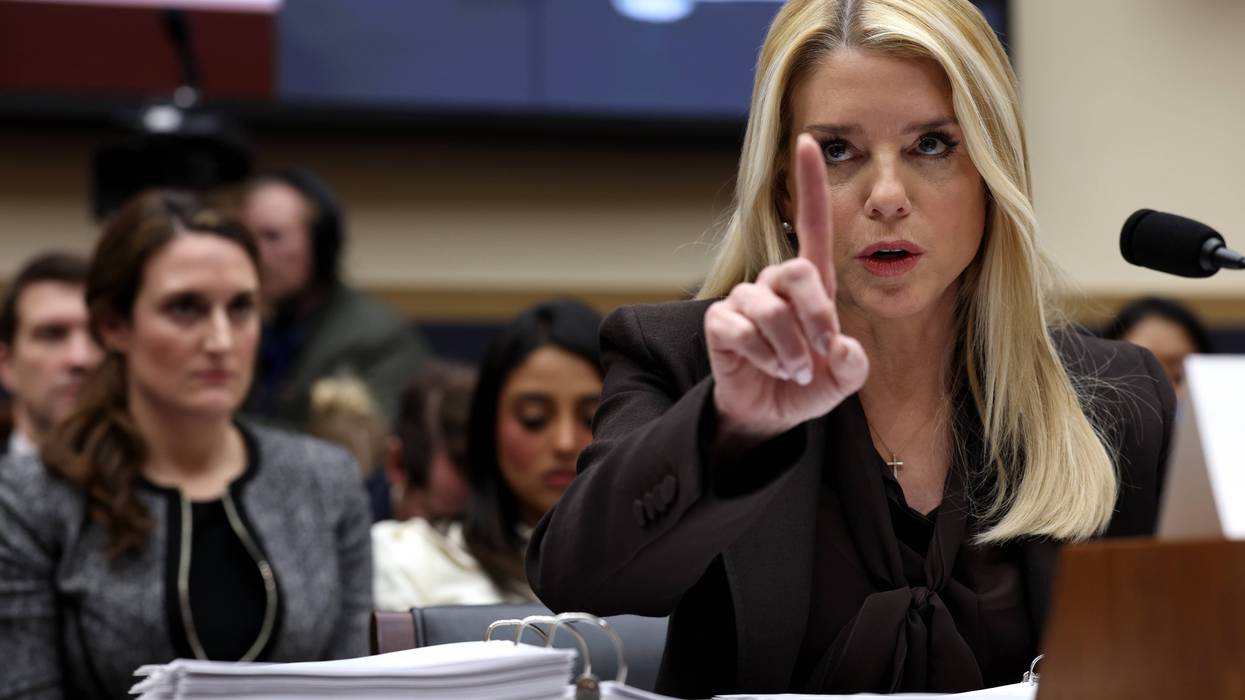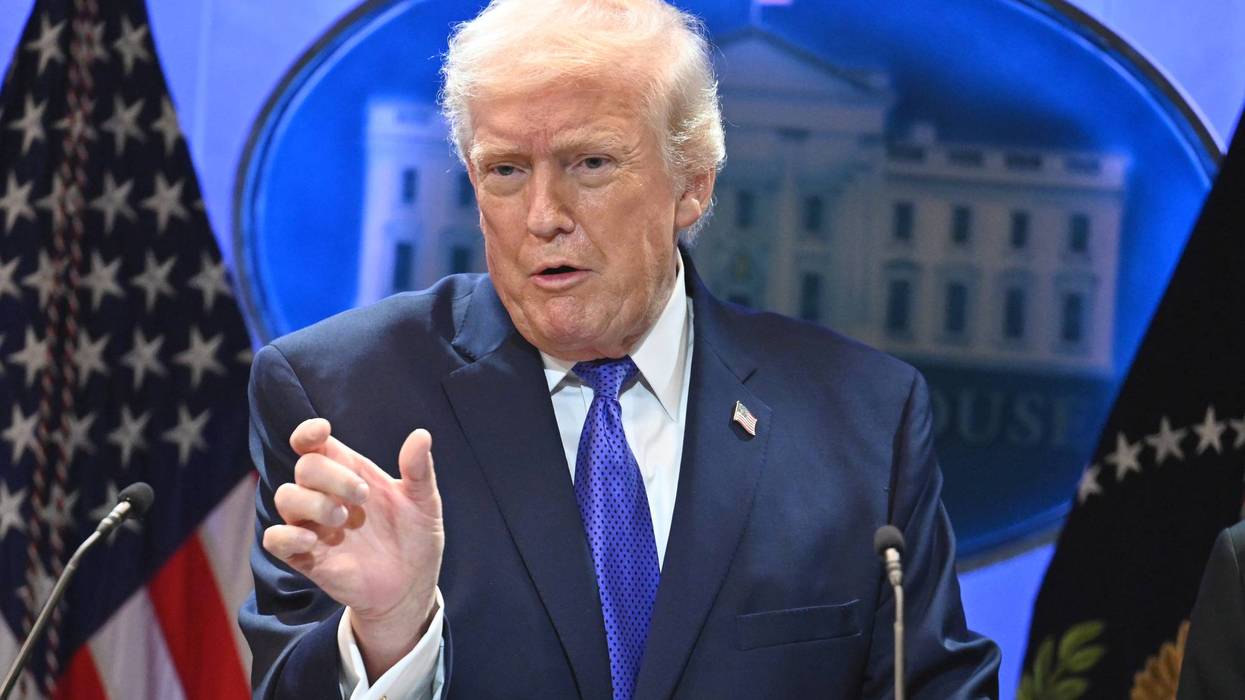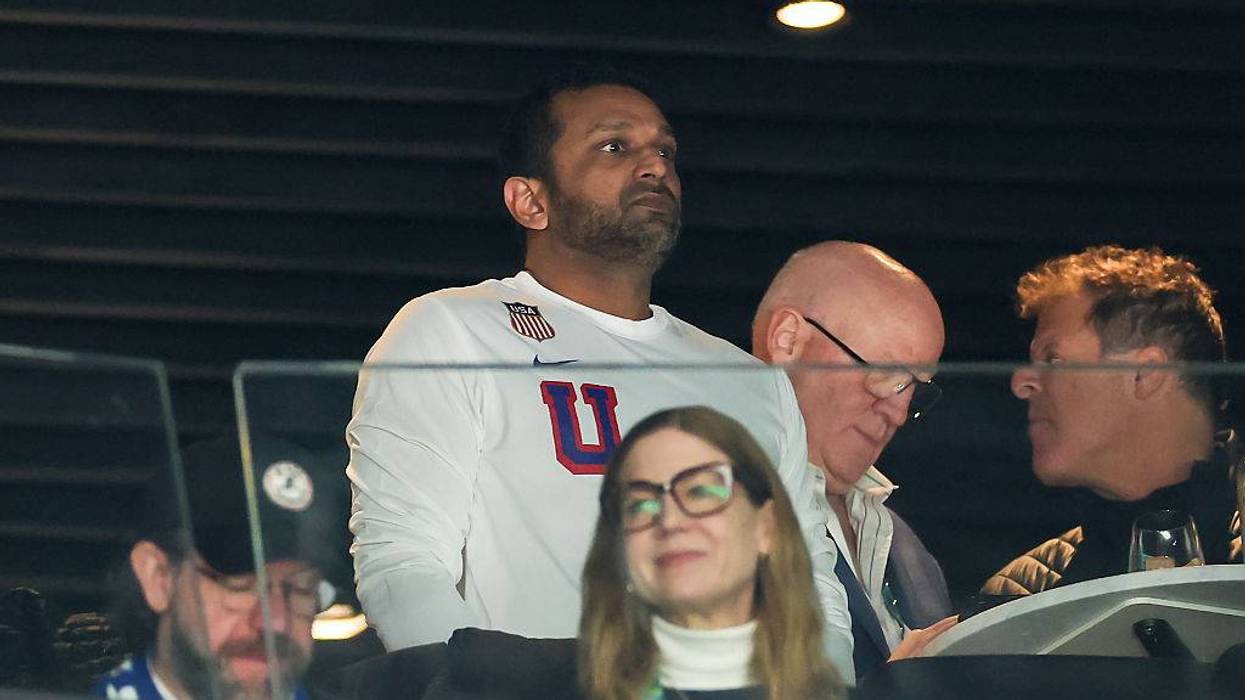November, 22 2020, 11:00pm EDT

Report: Fossil Fuel Industry Received Up To $15 Billion in COVID-19 Direct Relief
Industry Also Received Nearly $95 Billion in Indirect Support Through Federal Bond-Buying Programs and Private Bond Sales, Bringing Benefit Tally to $110 Billion
WASHINGTON
The fossil fuel industry has received up to $15.2 billion in direct federal relief through federal COVID-19 recovery programs since bailouts began in March 2020, a new report by BailoutWatch, Public Citizen and Friends of the Earth has found.
The report tallies the amount of money that has flowed to fossil fuel companies and related services since the beginning of the pandemic response.
All told, $110 billion in direct and indirect benefits, with half of the quantifiable direct and indirect benefits going to just 66 companies, including nearly $95 billion in indirect benefits.
Key findings:
- In its response to the pandemic since March 26th, the U.S. government provided between $10.4 billion and $15.2 billion in direct benefits to coal, oil, and gas companies, including:
- At least $5.5 billion via CARES Act tax law changes to 70 money-losing dirty energy companies, a number likely to grow;
- $582 million in direct, subsidized loans through the Federal Reserve's Main Street Lending Program to 37 mid-sized fossil fuel and related companies; the program caters to them by design;
- $4.3 to $9.1 billion in forgivable loans to at least 25,931 companies through the Small Business Administration's Paycheck Protection Program; and
- At least 229 oil and gas companies enjoyed waivers of fees normally paid to drill on public land, giveaways that cost the government a minimum of $4.5 million in lost revenue, likely far more.
- Five major fossil fuel companies received more than 10% of the $110 billion in direct benefits like tax refunds and indirect support in the form of bond issuances, even as their finances continued a years-long decline.
- More than 60 others double- or triple-dipped into government programs, collecting tax refunds and subsidized or forgivable loans while paying less money to drill on public lands thanks to pandemic-related giveaways.
- The Fed indirectly purchased $432.1 million in already-issued fossil fuel bonds through its Secondary Market Corporate Credit Facility.
- Investors responded by lending $93.5 billion to the struggling fossil fuel industry in newly-issued bonds in the months after the Fed stepped in.
To determine the scope of bailout benefits, the report research team calculated the direct benefits paid out through programs established under the CARES Act - the Paycheck Protection Program, the Main Street Lending Program, and tax-law changes benefiting the industry - and other industry-friendly policies, like fee reductions for drilling on public land.
The Fed's purchases of fossil fuel bonds from investors meanwhile, generated nearly $100 billion in indirect benefits as private investors, reassured by the Fed's actions, were suddenly more willing to buy fossil fuel bonds.
"When the pandemic hit last spring, Trump's corporate cronies made sure the fossil fuel industry was able to squeeze whatever favors they could out of the resulting economic rescues," said Alan Zibel, research director of Public Citizen's Corporate Presidency Project and a co-author of the report. "The Biden administration and the next Congress will have a golden opportunity to ensure our efforts to rescue the economy no longer benefit the very companies most responsible for the devastation caused by climate change."
"The fossil fuel industry took advantage of the pandemic to put their hands out for help escaping a financial mess of their own making, and their allies in the federal government rode to the rescue," said Christopher Kuveke, BailoutWatch analyst and a co-author of the report. "By artificially delaying the industry's inevitable decline at taxpayers' expense, the government has made it that much harder to make the necessary transition to clean energy sources."
"The Trump Administration has wasted billions of dollars keeping the fossil fuel industry alive," said Lukas Ross, Program Manager at Friends of the Earth. "President-elect Biden must ensure that people, not polluters, benefit from COVID relief. It's time to cut dirty energy's lifeline."
Read the full report here.
Public Citizen is a nonprofit consumer advocacy organization that champions the public interest in the halls of power. We defend democracy, resist corporate power and work to ensure that government works for the people - not for big corporations. Founded in 1971, we now have 500,000 members and supporters throughout the country.
(202) 588-1000LATEST NEWS
DOJ Under Fire for Withholding Epstein Files Related to Alleged Trump Child Sex Assault
"Covering up direct evidence of a potential assault by the president of the United States is the most serious possible crime in this White House," said one Democratic congressman.
Feb 24, 2026
The top Democrat on the House Oversight Committee announced Tuesday that an investigation will be opened into the US Department of Justice's withholding of Epstein files related to an alleged sexual assault on a 13-year-old girl committed by President Donald Trump decades ago.
“For the last few weeks, Oversight Democrats have been investigating the FBI’s handling of allegations from 2019 of sexual assault on a minor made against President Donald Trump by a survivor," Oversight Committee Ranking Member Robert Garcia (D-Calif.) said in a statement.
“Yesterday, I reviewed unredacted evidence logs at the Department of Justice. Oversight Democrats can confirm that the DOJ appears to have illegally withheld FBI interviews with this survivor who accused President Trump of heinous crimes," he continued. "Oversight Democrats will open a parallel investigation into this."
"Under the Oversight Committee’s subpoena and the Epstein Files Transparency Act, these records must immediately be shared with Congress and the American public," Garcia added. "Covering up direct evidence of a potential assault by the president of the United States is the most serious possible crime in this White House cover-up."
Oversight Dems have access to a list of documents, including interviews detailing serious allegations against President Trump, that are missing from the DOJ’s so-called “unredacted” files.Where are the missing files? What do they say? This all points to yet another cover up.
[image or embed]
— Rep. Robert Garcia (@robertgarcia.house.gov) February 24, 2026 at 2:21 PM
The Trump administration is accused of continuously flouting the Epstein Files Transparency Act—which mandated that all materials related to convicted child sex criminal and longtime former Trump friend Jeffrey Epstein be released by December 19. But critically, the law gives Attorney General Pam Bondi wide discretion to redact large amounts of information that could harm "national security."
Files on Epstein—who died under mysterious circumstances in a New York City jail cell in 2019 while awaiting trial on federal sex trafficking charges—that have not been released to the public despite the transparency law "include what appears to be more than 50 pages of FBI interviews, and notes from conversations with a woman who accused Trump of sexual abuse decades ago when she was a minor," NPR reported Tuesday.
That minor was allegedly introduced to Trump around 1983, when she was 13 years old.
“[REDACTED] stated Epstein introduced her to Trump, who subsequently forced her head down to his exposed penis which she subsequently bit," a DOJ file on the alleged incident states. "In response, Trump punched her in the head and kicked her out."
The child is one of more than two dozen women who have accused Trump of raping, sexually assaulting, or sexually harassing them.
In 2023, a civil jury in New York City found Trump civilly liable for sexually abusing and defaming journalist E. Jean Carroll and awarded her $5 million. In a separate defamation trial, Trump was ordered to pay Carroll another $83.3 million.
Trump, who denies any wrongdoing, is challenging these civil awards. Trump also denies an allegation that he and Epstein "brutally raped" a 13-year-old girl identified by the pseudonym "Katie Johnson" at a 1994 party.
As NPR reported Tuesday:
Other files scrubbed from public view pertain to a separate woman who was a key witness for the prosecution in the criminal trial of Epstein's co-conspirator, Ghislaine Maxwell, who is serving a 20-year prison sentence for sex trafficking. Maxwell is seeking clemency from Trump. Some of those documents were briefly taken down and put back online last week, while others remain hidden, according to NPR's comparison of the initial dataset from January 30 with document metadata of those files currently on the Justice Department website.
Earlier this month, Rep. Jamie Raskin (D-Md.) said that the unreacted Epstein files, which he had viewed, contained "more than million" references to Trump.
Robert Glassman, an attorney representing a woman who testified against Maxwell, blasted the DOJ for its "ridiculous" handling of the Epstein files.
"The DOJ was ordered to release information to the public to be transparent about Epstein and Maxwell's criminal enterprise network," he told NPR. "Instead, they released the names of courageous victims who have fought hard for decades to remain anonymous and out of the limelight. Whether the disclosures were inadvertent or not—they had one job to do here and they didn't do it."
Responding to the NPR report, Rep. Ted Lieu (D-Calif.) said on X, "I guarantee if these files exonerated Trump, they would have been released," adding that Bondi "must resign, and she must be prosecuted."
Democratic National Committee Rapid Response Director Kendall Witmer released a statement Tuesday asserting that "Donald Trump continues to lie about his relationship with Jeffrey Epstein, while his administration works overtime to hide the truth about Epstein’s heinous crimes from the American people."
"Tonight at the State of the Union, Trump will be in the same room as survivors of Epstein’s crimes, whom he has denied transparency and justice," Witmer added. "He and his administration must be held accountable for protecting pedophiles.”
Democratic lawmakers including Garcia, Raskin, and Senate Minority Leader Chuck Schumer (D-NY) have invited Epstein survivors as guests to Tuesday night's speech by Trump.
Elisa Batista, campaign director at the advocacy group UltraViolet Action, said in a statement Tuesday that we are in solidarity with the courageous survivors showing up in defiance of Trump’s attempts to change the conversation at the State of the Union tonight."
Batista continued:
Their bravery represents the will of millions of Americans who are demanding accountability not just for all those who enabled Jeffrey Epstein, but also for public officials like Attorney General Pam Bondi who continue to protect those abusers and enablers by refusing to release all of the Epstein files.
When it comes to the Epstein class, the real state of the union remains unchanged: These powerful abusers and enablers believe they will be shielded by their wealth, networks, or influence. Now, like before, it’s been the fearless insistence of survivors that’s stood in the way of efforts by politicians like Trump and Bondi to sweep the full legacy of Epstein’s child sex trafficking network under the rug.
“No matter how much Trump and Bondi try to distract us from the fact that they broke the law to keep the public in the dark about the extent of Epstein’s child abuse, we, survivors and allies, will not allow them to forget their role in offering cover for Epstein and his enablers," Batista added.
Keep ReadingShow Less
Report Details How Trump Economic Agenda ‘Will Make Ordinary Families Reliably Poorer in the Future’
In just one year, Republicans' 2025 budget package is expected to increase income inequality at quadruple the rate seen over the past 40 years.
Feb 24, 2026
President Donald Trump's economic agenda "will make ordinary families reliably poorer in the future," according to the author of a report published Tuesday by the Economic Policy Institute.
Josh Bivens, EPI's chief economist, said Trump's slashing of federal spending and jobs, mass deportations, chaotic tariffs, and anti-labor policies were suppressing hiring and wages, draining household and business spending, and slowing economic growth.
While a recession is not yet inevitable, Bivens argued that worrying signs are already on the horizon, with 1.4 million fewer new jobs than expected in 2025 and unemployment ticking up to 4.4%, up from the low of 3.4% in April 2023.
For low-wage earners, the past year has been particularly rough. After seeing unusually fast growth during the presidency of Joe Biden, real wages for the bottom 10% of earners fell by 0.3% in 2025.
The report predicts that Republicans' 2025 budget package will reduce “aggregate demand” in the coming years. The so-called One Big Beautiful Bill Act cuts $100 billion annually from Medicaid and the Supplemental Nutrition Assistance Program (SNAP), while allowing health insurance subsidies that saved families thousands to expire, which the report projects will cause many families who rely on these benefits to pull back spending in the economy.
While the law reduced taxes, the vast majority of those benefits went to the wealthiest earners, whose spending was already much less constrained by their incomes.
The report notes the astonishing increase in inequality caused by the law. Between the years of 1979 and 2019, which were considered to have seen an explosion of wealth inequality, the share of income claimed by the richest 10% increased by about 0.25% per year.
It found that the GOP budget law will, in just one year, increase the top decile's share of wealth by a full percentage point. In other words, the rate of inequality will "quadruple in its first year."
Aside from this major driver of inequality, the report also says that the Trump administration's hostility toward collective bargaining rights and its mass firings of federal workers would further suppress wages by making the labor market less competitive, and that the president's erratic tariff regime would make those wages less valuable by fueling inflation.
“Disastrous policy choices that led to excess unemployment, slower growth in the economy’s productive capacity, and rising inequality have made life less affordable for typical families in recent decades," Bivens said. "The Trump administration’s policies double down on the worst policy decisions of this period and will make ordinary families reliably poorer in the future, even if an outright recession or spiking inflation does not happen."
Keep ReadingShow Less
Whistleblower: Kash Patel's Use of FBI Jets for Personal Travel Delayed Murder Probe
"The FBI cannot afford to have its resources further stretched by a director who views its staff and aircraft as a means to support his jet-setting lifestyle."
Feb 24, 2026
A whistleblower is claiming that FBI Director Kash Patel's frequent use of one of the agency's two jets has led to the delay of a high-profile murder probe.
Sen. Dick Durbin (D-Ill.) on Tuesday revealed he had received new whistleblower disclosures related to his investigations into Patel's use of FBI aircraft for personal travel, and he said they showed Patel's decisions regarding the use of FBI planes had delayed investigations not only into the murder of right-wing activist Charlie Kirk but also the November 2025 mass shooting at Brown University.
In the case of Kirk, Durbin said that the FBI shooting reconstruction team's deployment to Utah "was delayed by at least a day because of a bureau plane and pilot shortage caused by the director's personal flights."
Durbin said that he also received information showing how Patel bungled the aftermath of the Brown shooting by putting the FBI's Hostage Rescue Team (HRT) on standby to respond to the incident.
"The director’s decision caused immediate confusion," Durbin said, "because that order was not communicated to HRT; it upended the responsibility typically assigned to the local field office closest to the incident in question—in this case Boston or New York City—to provide immediate support; and it froze the aircraft’s usage by any other FBI team until the director removed the hold."
Durbin then said that the whistleblower described how his team "had to drive from Quantico, Virginia to Providence, Rhode Island overnight during a winter storm to reach the scene by 9:00 am the following morning to immediately process evidence."
Durbin noted he received this information shortly after Patel was seen chugging down a beer in the locker room of the gold medal-winning US men's Olympic hockey team on Sunday, after the director once again used an FBI plane to fly to Milan, Italy.
The Democratic senator said that Patel's trip to Italy could have seriously hampered the FBI's ability to investigate what may have been an assassination attempt on President Donald Trump.
"It also cannot be ignored that the director’s latest personal jaunt occurred on the same weekend an armed intruder attempted to breach President Trump’s Mar-a-Lago residence," Durbin explained. "The man was allegedly carrying a gas can and a shotgun, and he was killed on the scene by law enforcement."
Durbin concluded by saying that "the FBI cannot afford to have its resources further stretched by a director who views its staff and aircraft as a means to support his jet-setting lifestyle."
MS NOW reported that an FBI spokesperson has "disputed" the whistleblower's claims that Patel's decisions had caused delays to investigations, but added that they need to "check into the matter more deeply to gather information."
Keep ReadingShow Less
Most Popular


